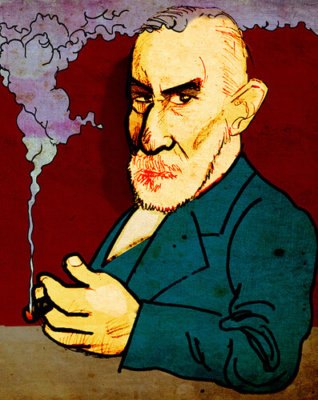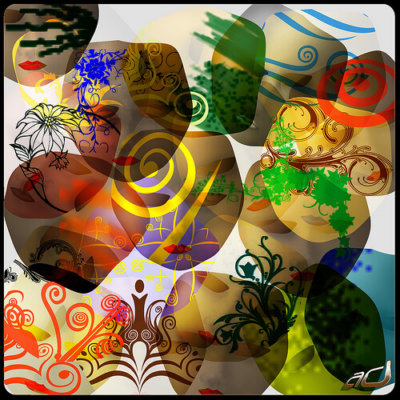What Are Repressed Emotions?

By: Holly Lay
by Andrea M. Darcy
We all hide our emotions now and then. If we are upset about a fight with our partner, we don’t show it when we are at work.
But being private with how you feel is different than the more serious (if possibly connected) issue of suffering repressed emotions.
Suppressed vs Repressed
It is helpful to understand the difference between suppression and repression.
When we know we are having a feeling that we don’t want to feel, and we consciously try to avoid it, we are suppressing it.
Repression takes hiding our emotions to another level.
It means that we have taken uncomfortable emotions we are not comfortable with (mostly connected to experiences from a child) and hidden them in our unconscious. To the extent we are no longer aware we have them at all.
Sure, we might sometimes have little ‘glimmers’. A smell or sound might trigger an uncomfortable feeling. We might hear a little voice in our head go, “Am I actually sure about what I think and feel about my past, or not?” But for the most part, it’s about denial. “Me? Angry? Never.”
How the two are connected
Popular articles nowadays talk about suppression and repression interchangeably. This might be because they are so often connected. A person with many repressed emotions from a difficult childhood is prone to suppress emotions in the present. So that same man who has hidden all his feelings about his mother abandoning him as a child? Is likely to be the very sort who avoids his anger over a recent breakup.
It’s important to note that suppressed emotions are not ‘better’ then repressed ones. While keeping our emotions in check in social situations makes sense, constantly avoiding our feelings is never a good idea, and is something to take seriously.
The Repressed Memories Connection

By: aeneastudio
Repressed emotions are connected to the concept of repressed memories. And repressed memories are cornerstone of psychoanalytical theory, suggested by Freud himself.
He proposed that when we are young we ‘forget’ threatening and unpleasant experiences (along with how they made us feel) as a way to protect ourselves and our self-image. In this way, repression works as a defence mechanism.
Of course this theory, like many, has been questioned. It can’t be ‘proven’ in research that we have chosen to hide memories. It might be that the brain simply loses its capacity to retrieve things, because the anxiety of the situation impedes its usual way of sorting.
Theories aside, if you do have difficulty in naming and feeling your emotions as an adult? It’s likely you have experiences in your past that could use your attention.
[Worry that anger is your real issue? You might find our connected article useful, ‘Is Repressed Anger Holding You Back?‘.]
Why would I be the sort to be emotionally repressed?
Again, for Freud and the school of psychoanalytical thought, it would be based on choices you made as a child around what was acceptable and not acceptable for you to remember and feel. But there are other ways to look at it, too.
Being emotionally repressed can be environmental, and a learned behaviour. If, for example, you never saw a parent express sadness or fear? Then you would be more prone to follow this behaviour that was modelled for you, and also hide your emotions.
It can also be a cultural learned behaviour. They are stereotypes, but at the same time, it is true that British people tend to be reserved. Whereas those raised in a Latin culture can be more emotional.
Childhood trauma tends to be a major cause of ending up an emotionally repressed adult, and it doesn’t have to be a “big” trauma. What might seem small to us as an adult could have been seriously traumatic for our child brain. A mother who ignored you for days if you dared to cry, for example? Could likely lead to you being an adult who repressed sadness.
Why does it matter if I have repressed emotions?
 Yes, you might ‘get by’ in life. But repressed emotions have a knock-on effect that can hold you back in all areas. They can mean that you constantly miss out on what you truly want from life.
Yes, you might ‘get by’ in life. But repressed emotions have a knock-on effect that can hold you back in all areas. They can mean that you constantly miss out on what you truly want from life.
1. You can constantly struggle with relationships.
You might be accused of being ‘cold’, or project and blame others for being ‘too emotional’. It’s possible you struggle with jealousy, or are the sort to always make a ‘mountain of a molehill’, using drama to replace feeling. Often it’s hard to experience true intimacy .
2. Your career can suffer if you have repressed emotions.
Repressing emotions can leave you the sort to overreact to small things, meaning you get a reputation for being hard to work with. Or, it can mean you avoid the necessary constructive conflict that marks you out as promotable, and instead are seen as lacking assertiveness.
And if your job gets very stressful at the same time as other parts of your life, repressed emotions can make you more susceptible to a nervous breakdown that sees you taking time off. Or even losing your career entirely.
3. As can your physical health.
Repressed emotions can cause anxiety and depression, both of which can affect your physical health . This can look like tense muscles, sleeplessness, raised cortisol, constant cold and flus, etc. It also leads to addictive behaviours, such as overeating and drinking too much alcohol.
What do I do if I think I suffer from repressed emotions?
It can be overwhelming to try to process stuck emotions alone, especially as they can be connected to difficult past experiences. So it is a good idea to seek the support of an experienced counsellor or psychotherapist who can create a safe space for you to explore your feelings and past.
Types of talk therapy recommended for exploring repressed emotions include psychodynamic psychotherapy, person-centred therapy, integrative therapy, and psychoanalysis, amongst others.
Want to know if you suffer from repressed emotions? Read the next post in this series, “Are You Emotionally Repressed?”.
Harley Therapy connects to you to London-based therapists who can help you process your repressed emotions and move forward in life. Not in London? online therapy is now available no matter where you live.
 Andrea M. Darcy is a health and wellbeing writer as well as mentor, trained in person-centred counselling and coaching. She often writes about trauma, relationships, and ADHD. Find her on Instagram @am_darcy
Andrea M. Darcy is a health and wellbeing writer as well as mentor, trained in person-centred counselling and coaching. She often writes about trauma, relationships, and ADHD. Find her on Instagram @am_darcy





Wonder if Repressed Emotions is real, because this theory cant be proven.
Hi Saba, no psychological thing can be ‘proven’ because psychological problems are not illnesses we can see under a microscope and we can’t exactly put people in a lab non-stop like rats. But we can observe people as best we can. And a few decades of research would seem to show that repressed emotions is a valuable concept for many people. What is more important, if something is ‘proven’, (reality itself is not actually ‘proven’, all we know about it is mostly conceptual and guesses) or if something seems true and helps others to assume true? Something to think about.
I recently discovered that my husband is talking to his ex girlfriend. He has spoke often of her over the years and has even told me that she was the “one who got away” and how “sad” he was when it ended. I saw in some of his messages where he told he was still in love with her. When I asked him about he said he just got caught up in the moment. I further questioned him and he got angry and told me he dont why he said it…is it possible he repressing his feelings for her and just doesnt want to admit them to me?
He’s the one who would know that, not us. And a lot of people romanticise someone from the past and use it to make themselves feel better when they are overwhelmed in the present. It doesn’t necessarily mean they want anything of it, it’s often more a sign that things aren’t ok in the here and now. So what seems more important here is not this person from the past, but what is happening between you and your husband. It seems like communication and connection breakdown and anger on both sides. This seems a symptom, not the issue. When did you stop trusting each other? Are you not feeling connected, when did that start? What are the real issues in your relationship that have led to this one? If you are both up to it, couples counselling is always a great help. Good luck.
Is there a relationship between anxiety and repressed anger? Can anxiety come from repressing emotions like anger, jealousy, fear……?
Maryam, that’s a very general question, it would depend on what the emotions were about. Take, for example, a situation where a person suffered sexual abuse and then repressed emotions like anger and fear. They might very well also have anxiety. It would be more about the experience and situation that caused the repressed emotions and also the anxiety, over the actual repressed emotions causing the anxiety. It would more likely be the root issue causing both.
i don’t feel happy or sad. i do laugh and smile sometimes but i don’t actually feel happy. there’s a constant feeling of fear and dread in my chest and it won’t go away, even if i’m smiling. i get irritated by things at least 3 or 4 times a day. i just feel nothing, and i don’t even know why it’s happening. does this still mean i’m repressing my emotions?
Hi Asteria, please see our other response to your other comment, it sounds more like depression. Depression does involve a repression of feelings.
Thank you for this article.
Much research has been done and validated about the “mind numbing” “flattening” “suppressing” effects of psychoactive / psychotropic / antidepressants / et cetera drugs.
By being prescribed such drugs psychotherapy is rendered ineffective (also supported by legitimate authentic research) past a very short period of time.
Maybe having reliable and regular and frequent and ongoing source/s of talk therapy would be the most beneficial and yet it is not offered nor is it funded; so maybe the wealthy can afford such a luxury, which then goes on to say something about society and its inhabitants.
This is more than sad.
Thank you for the insights.
The liistd symptoms – “can look like tense muscles, sleeplessness, raised cortisol, constant cold and flus, etc.” – are similar if not the same as for many prescribed and over the counter drugs.
How do you differentiate drug side effects?